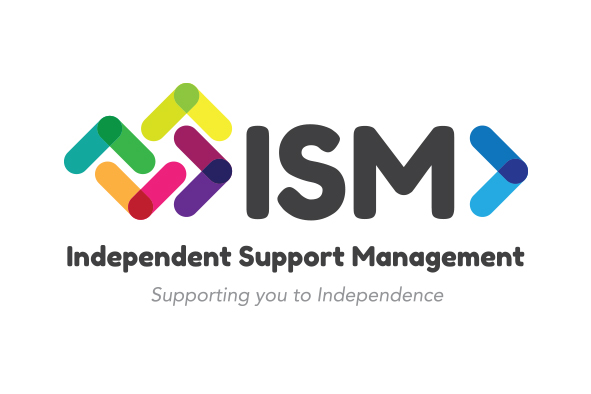👩🏫 Understanding 'Other Professionals' in NDIS: Focus on Over 7s
Welcome to ISM's Knowledge Hub! 👋
Today, we’re diving into the specific requirements for 'Other Professionals' delivering therapeutic supports to individuals aged over 7 under the NDIS (line items: 01_741_0128_1_3 | 01_740_0118_1_3 | 15_056_0128_1_3). If you're navigating the world of NDIS supports and wondering what this means for you or someone you support, we’re here to make it clear and simple. Let’s explore how this applies to NDIS participants aged over 7, and how ISM can help you include these services in your plan:
What Are 'Other Professionals' in the NDIS?
The NDIS Pricing Arrangements describe 'Other Professionals' as individuals who don't fall into conventional therapeutic roles (like psychologists or physiotherapists) but are considered suitable to deliver supports under the Therapeutic Supports Registration Group.
For participants aged over 7, these professionals must align with the NDIS Quality and Safeguards Commission’s requirements. These standards ensure that only qualified and experienced practitioners deliver therapeutic supports.
Key Differences: Over 7s vs. Under 7s
Over 7s:
Practitioners delivering therapeutic supports must meet specific NDIS Quality and Safeguards Commission requirements for registration. This includes qualifications, experience, and adherence to standards under the Therapeutic Supports Registration Group.Under 7s:
The above requirements do not apply. Supports for younger participants may be delivered under Early Childhood Intervention approaches, with different flexibility and criteria.
Who Can Be Considered 'Other Professionals'?
For participants aged over 7, 'Other Professionals' include the following roles, along with their specific eligibility requirements:
Art Therapists
Qualifications: Degree in Art Therapy or a related field.
Requirements: Registered with the Australian, New Zealand, and Asian Creative Arts Therapies Association (ANZACATA) or equivalent body.
Counsellors
Qualifications: Diploma or higher in Counselling.
Requirements: Membership with a recognized professional association such as the Australian Counselling Association (ACA).
Developmental Educators
Qualifications: Bachelor’s degree in Disability Studies or equivalent.
Requirements: Membership with Developmental Educators Australia Inc. (DEAI).
Music Therapists
Qualifications: Master’s degree in Music Therapy.
Requirements: Registered with the Australian Music Therapy Association (AMTA).
Audiologists
Qualifications: Master’s degree in Audiology.
Requirements: Membership with Audiology Australia or equivalent accreditation.
Dietitians
Qualifications: Accredited Practicing Dietitian (APD) status.
Requirements: Registered with Dietitians Australia.
Exercise Physiologists
Qualifications: Bachelor’s degree in Exercise Physiology or equivalent.
Requirements: Accredited with Exercise and Sports Science Australia (ESSA).
Occupational Therapists
Qualifications: Bachelor’s or Master’s degree in Occupational Therapy.
Requirements: Registration with the Australian Health Practitioner Regulation Agency (AHPRA).
Orthoptists
Qualifications: Bachelor’s degree in Orthoptics.
Requirements: Membership with Orthoptics Australia.
Physiotherapists
Qualifications: Bachelor’s or Master’s degree in Physiotherapy.
Requirements: Registration with AHPRA.
Podiatrists
Qualifications: Bachelor’s degree in Podiatry.
Requirements: Registration with AHPRA.
Psychologists
Qualifications: Master’s degree in Psychology or equivalent.
Requirements: Registration with AHPRA and membership with the Australian Psychological Society (APS).
Social Workers
Qualifications: Bachelor’s or Master’s degree in Social Work.
Requirements: Membership with the Australian Association of Social Workers (AASW).
Nurses
Qualifications: Bachelor’s degree in Nursing.
Requirements: Registration with AHPRA.
What Are the NDIS Registration Requirements for 'Other Professionals'?
For practitioners working with participants aged over 7, the following requirements must be met:
Relevant Qualifications:
Practitioners must hold formal degrees, diplomas, or certifications in their respective fields.
Demonstrable Experience:
Evidence of prior work with individuals with disabilities, especially in therapeutic settings, is essential.
Compliance with NDIS Standards:
Practitioners must adhere to the NDIS Code of Conduct and maintain ongoing professional development as required by the NDIS Quality and Safeguards Commission.
Why This Matters for Participants Aged Over 7
For older participants, the inclusion of qualified professionals ensures high-quality and safe supports, with the following benefits:
Specialised Support: Practitioners meet strict standards, equipping them to address complex needs.
Regulatory Assurance: Families can trust that services are delivered ethically and professionally.
How ISM Can Help
At ISM, we understand that navigating these requirements can feel overwhelming. Our team is here to support you by:
Advising on Provider Suitability: Helping you identify 'Other Professionals' who meet these criteria for participants over 7.
Budget Planning: Assisting with allocating funds for diverse therapeutic supports within your plan.
Claim Management: Taking care of the administrative side so you can focus on achieving your goals.
Key Takeaways
Over 7s: Must use 'Other Professionals' who meet the NDIS Quality and Safeguards Commission’s requirements under the Therapeutic Supports Registration Group.
Under 7s: These specific requirements do not apply, allowing for more flexible supports under Early Childhood Intervention.
Including qualified 'Other Professionals' provides tailored therapeutic support and increased choice for participants.
We hope this deep dive has clarified the requirements! If you have any questions or need help finding the right professionals for your NDIS plan, reach out to the ISM team. We’re here to support you every step of the way. 😊💪
